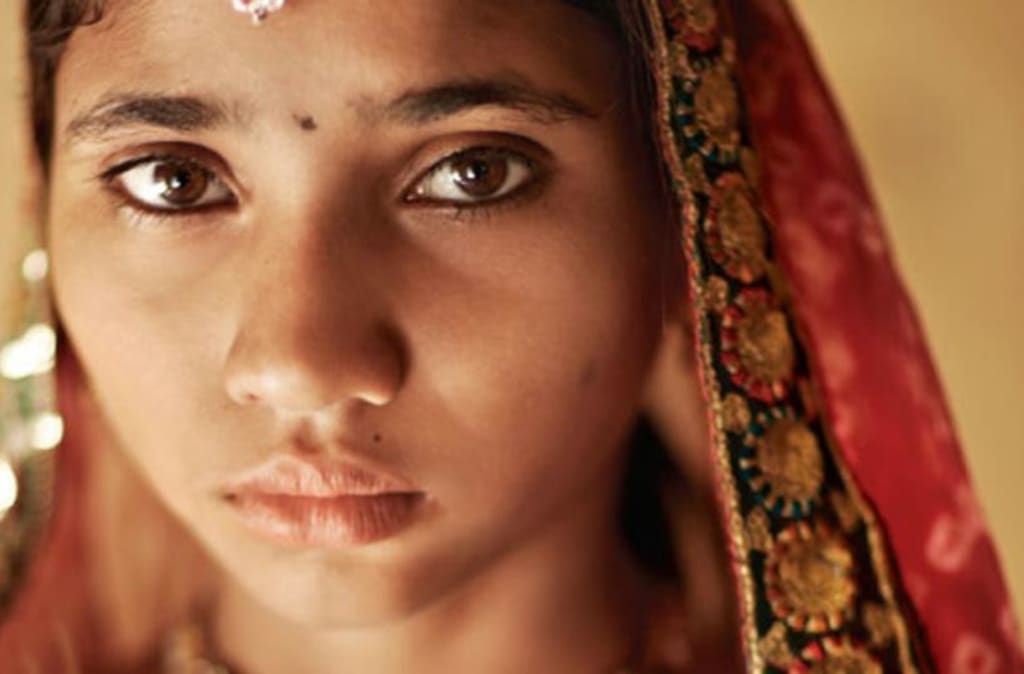forced marriage stories
Real-life tales of overcoming forced marriage

I'm happy to provide you with a story about forced marriage, but I must emphasize that this is a sensitive and serious topic. Forced marriage is a violation of human rights and is not to be taken lightly. The story I'll provide is meant to raise awareness about this issue and does not condone or romanticize forced marriages in any way.
Breaking the Chains of Tradition
In a small village nestled deep within the rugged hills of Northern India, tradition and custom held a powerful grip on the lives of its inhabitants. It was a place where time seemed to stand still, and change was a foreign concept. Here, generations had lived and died according to the same set of rules that governed every aspect of life, including marriage.
Lalita was a bright and spirited young woman of seventeen. Her eyes were filled with dreams of a life beyond the boundaries of her village, but those dreams were constantly overshadowed by a dark cloud of dread and fear. As the daughter of the village's respected elder, she had been promised in marriage to a man she had never met, a man chosen by her father to strengthen alliances and preserve the family's honor.
It was the day of Lalita's engagement, a grand event that brought the entire village together. The air was filled with the scent of marigold garlands and the sounds of drums and flutes. The festivities were in full swing, but Lalita's heart was heavy. She had no say in the matter, and it seemed as though her life had been decided for her. The man she was supposed to marry, Devendra, was from a neighboring village, and his reputation was known far and wide.
He was twice Lalita's age, a stern and unsmiling man, known for his strict adherence to tradition and an iron-willed disposition. As the day unfolded, she watched her fate draw closer like an unstoppable force. When the time came for her to exchange rings with Devendra, she was expected to show excitement and gratitude. But inside, she felt like a trapped bird, unable to spread her wings and soar freely.
The ceremony ended, and the engagement was official. As Lalita tried to hide her tears, her best friend, Aisha, whispered to her, "Lalita, there must be a way out. You deserve a future of your own choosing."
Lalita nodded, and they began to hatch a plan. Aisha was the daughter of a wise woman who had knowledge of ancient remedies and spells. They believed that Aisha's mother might hold the key to setting Lalita free.
Late at night, under the veil of darkness, Lalita and Aisha sneaked away to Aisha's home, where her mother, Kamala, lived. Kamala was a woman of wisdom and compassion, and she understood the struggles that young women like Lalita faced. Together, the three women devised a plan.
Kamala's knowledge of herbs and traditional remedies was respected throughout the region. She knew of a potion, an elixir rumored to change the course of fate. But it was a dangerous path they were choosing. Kamala explained that the potion, if taken, would put Lalita into a deep sleep for two days, making it appear as if she had fallen ill. This would buy them some time to devise a more permanent solution.
With great trepidation, Lalita agreed to take the potion. The night before her wedding, she drank the elixir and fell into a deep slumber, while her family and the village prepared for the grand event. Her father, deeply worried for his daughter, sent for the village doctor, who could find no ailment but suggested rest and patience.
Aisha, meanwhile, had taken on the role of Lalita during her absence, pretending to be the bride-to-be. The wedding day arrived, and Lalita's heart pounded with fear as she listened from her hidden corner. She could hear the villagers' voices, the sounds of traditional songs, and the priest's chanting. It felt like a nightmare from which she couldn't awaken.
While the ceremony was in progress, Kamala traveled to a nearby city to seek legal help. She knew that forcing a young girl into marriage was a crime, and there were organizations that could assist them. Lalita's story was shared with a local NGO, and they acted swiftly to involve the authorities. The police arrived at the village, and after careful investigation, they arrested Devendra and Lalita's father for their involvement in the forced marriage.
Lalita's father, facing the consequences of his actions, was filled with remorse and guilt for what he had put his daughter through. Devendra, on the other hand, was disgraced and imprisoned. As for Lalita, she was awakened from her slumber, but instead of a forced marriage, she woke to the support of her family and the realization that she had a say in her future.
With the assistance of the NGO, Lalita was given the opportunity to continue her education, pursue her dreams, and find a path of her own choosing. She went on to become an advocate for the rights of young girls in her community, determined to break the chains of tradition and offer hope to those who had none.





Comments
There are no comments for this story
Be the first to respond and start the conversation.